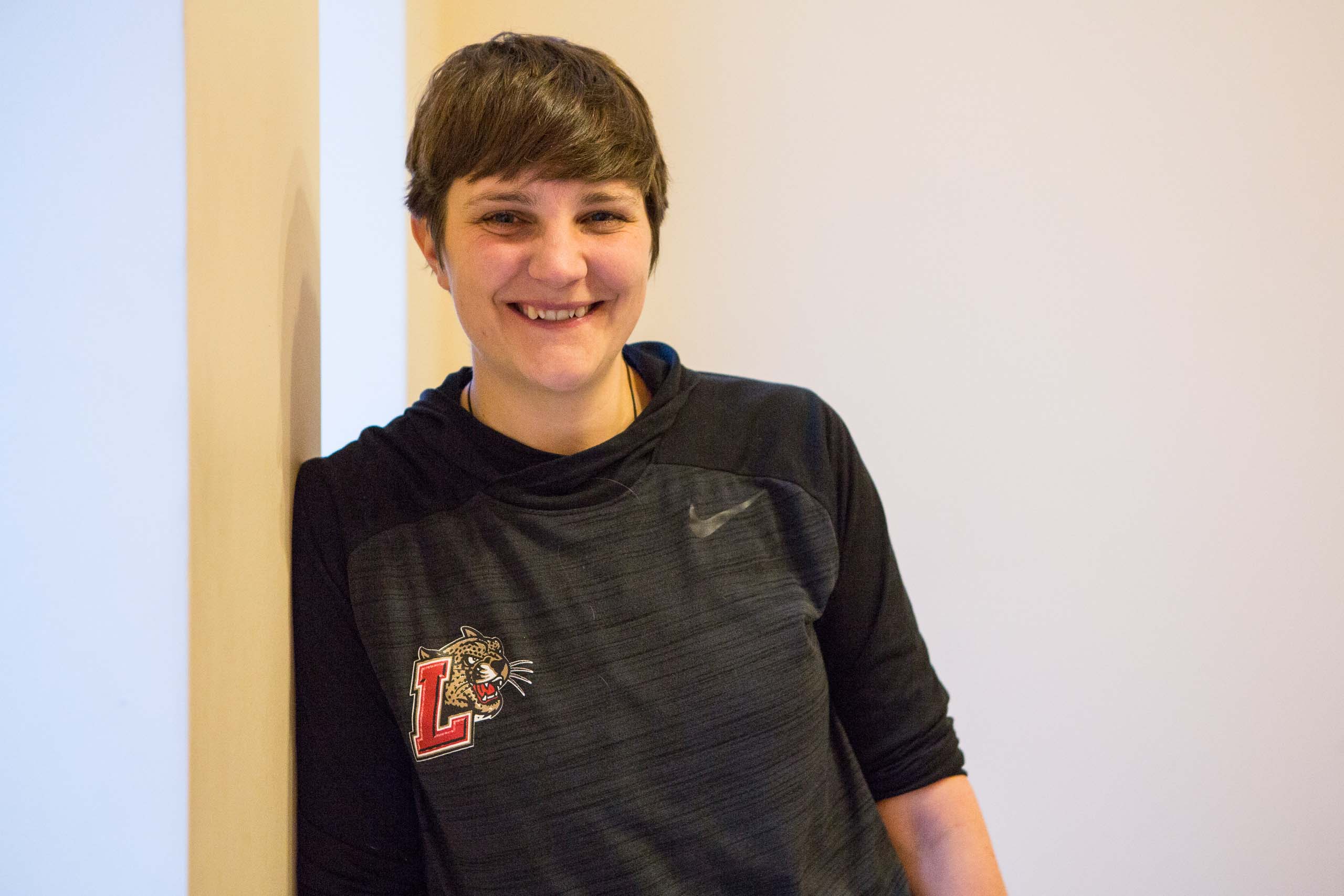A sports psychology professor explains why the Eagles are smart to embrace their rep.
By Katie Neitz
A bird of prey is the Philadelphia Eagles’ official mascot, but this year, the team is adopting a different spirit animal: underdog.
The Eagles’ Super Bowl chances were considered shot when a torn ACL took out quarterback Carson Wentz and ended his season. So when the Birds pulled off an unlikely playoff win against the Atlanta Falcons, right tackle Lane Johnson and defensive end Chris Long slipped on German shepherd and poodle masks, respectively, to celebrate the triumph out on the field.
Fully embracing their underdog status is a smart strategy, says Kat Longshore ’07, a mental performance coach who works with the College’s women’s lacrosse and softball teams and is a visiting assistant professor in the psychology department. The Eagles will need to continue to tap into that positive, confident mindset as they prepare to face off against the highly decorated New England Patriots in Super Bowl LII on Sunday.
 “Being an underdog can go either way: It can work for you or against you,” Longshore says. “If you have a pessimistic mindset and let a dominant opponent intimidate you, it can have a negative impact on your performance. Instead, it’s better to flip that mentality and think of being an underdog as an advantage: All the pressure to perform amazingly is on the other team. You have nothing to lose; you can just relax and play.”
“Being an underdog can go either way: It can work for you or against you,” Longshore says. “If you have a pessimistic mindset and let a dominant opponent intimidate you, it can have a negative impact on your performance. Instead, it’s better to flip that mentality and think of being an underdog as an advantage: All the pressure to perform amazingly is on the other team. You have nothing to lose; you can just relax and play.”
This is familiar territory for the Eagles, which also works to their advantage. “They have been underestimated all season, which means they are well-versed in how to believe in themselves despite the odds against them,” she says. “They don’t have to take a different mental approach now. They just have to keep doing what they’ve been doing.”
And that’s key because consistency is an athlete’s secret weapon. Just as center and quarterback need to practice to execute a perfect snap, Longshore says mental toughness needs to be practiced so it’s unflappable when the stakes are high—as they will be on Sunday.
Fan Favorite
Full disclosure: Longshore bleeds green, as they say. She moved to Philadelphia when she was 7 and became indoctrinated into the local fan base. After earning her B.S. in psychology, she returned to Philly, where she earned her Ph.D. in the psychology of movement at Temple.
Philly roots and allegiances aside, Longshore isn’t alone in wanting to see the underdog team win. Research shows that people like to cheer for the little guy.
For example, a 2007 study published in Personality and Social Psychology Bulletin asked people if they would prefer to see a lower-ranked team beat out a higher-ranked one in a swimming competition. Study participants overwhelmingly said they’d prefer to see the lower-ranked team win.
“I think part of it is that we see ourselves in underdogs,” Longshore says. “We think that if they can go out there and beat the obstacles and fulfill their dreams, maybe we can too. I think another aspect of it is that we like to have our expectations blown away. It’s fun to watch a game with an unexpected outcome.”
On Sunday, Longshore will be watching the game with her brother-in-law. They have watched the Eagles’ games together all season long and aren’t about to mess with that tradition.
“I think fans develop superstitions because it helps quell our anxiety,” she says. “We can’t do anything about how the players play or the decisions the coaches make or the calls the refs make, but we can wear the same shirt and eat the same food on the same couch with the same people. And that makes us feel like we have some control. Even though I know better.”
 “Being an underdog can go either way: It can work for you or against you,” Longshore says. “If you have a pessimistic mindset and let a dominant opponent intimidate you, it can have a negative impact on your performance. Instead, it’s better to flip that mentality and think of being an underdog as an advantage: All the pressure to perform amazingly is on the other team. You have nothing to lose; you can just relax and play.”
“Being an underdog can go either way: It can work for you or against you,” Longshore says. “If you have a pessimistic mindset and let a dominant opponent intimidate you, it can have a negative impact on your performance. Instead, it’s better to flip that mentality and think of being an underdog as an advantage: All the pressure to perform amazingly is on the other team. You have nothing to lose; you can just relax and play.”
1 Comment
Kat, Very logical and a real grasp of America’s roots. We do like the underdog. Number one gets boring. And sometimes when number one falls, it’s hard.
Our love to Monica. We’ll have our chips and dip and watch the Eagles win. Love as always, Aunt Jo and Uncle Mike
Comments are closed.